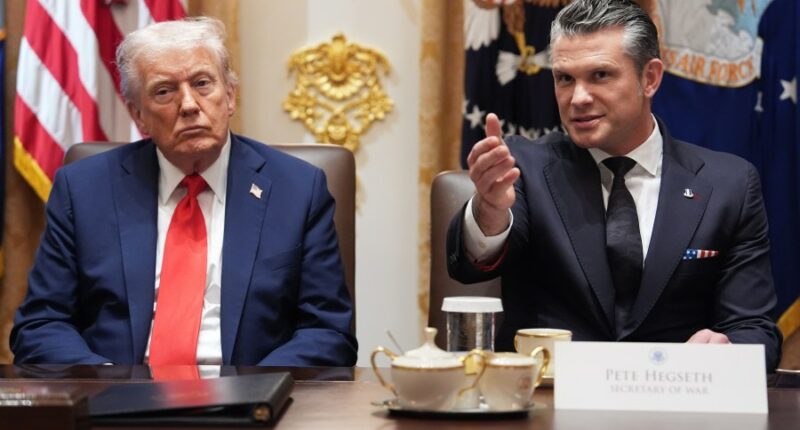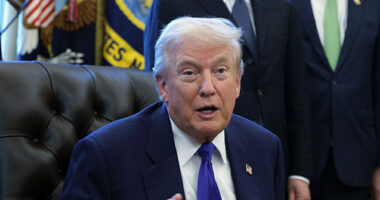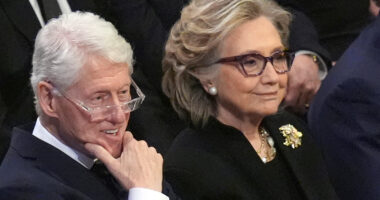Share this @internewscast.com

In a move attracting attention in Washington, President Donald Trump has put forward Lt. Gen. Christopher LaNeve for the pivotal role of the Army’s vice chief of staff. This nomination, as documented in congressional records, signals another notable shift within the military’s upper echelons.
Currently, Gen. James Mingus occupies the position of vice chief of staff. Despite having served less than two years in this role—typically held for at least three—there have been no public indications from Mingus regarding any intention to vacate his post.
The nomination of LaNeve marks the latest in a series of unexpected personnel changes under the Trump administration and Defense Secretary Pete Hegseth, characterized by abrupt firings, reassignments, and promotions. These decisions have notably reshaped the senior military leadership landscape.
Official sources within the Army and Hegseth’s office have remained tight-lipped about the reasoning behind Mingus’ anticipated departure and the subsequent promotion of LaNeve, who currently serves as Hegseth’s principal military aide.
Maj. Peter Sulzona, spokesperson for Mingus, conveyed to The Associated Press via email that he will refrain from commenting on nominations still in progress. However, he assured that Mingus remains committed to fulfilling the responsibilities of his role, with a continued emphasis on combat readiness and the welfare of soldiers.
Before assuming his current position last year, Mingus was part of the Joint Chiefs of Staff, beginning his tenure in 2020 under then-Chairman Gen. Mark Milley. Although Milley was initially appointed by Trump during his first term, he later became a source of friction for the president, facing substantial criticism during Trump’s subsequent term.
The nomination and replacement come less than a week after Adm. Alvin Holsey, the Navy admiral who is overseeing military operations against alleged drug boats off Venezuela, announced a surprise, early retirement in December.
About a month ago, Gen. Thomas Bussiere, head of the Air Force’s Global Strike Command, also suddenly announced his retirement, citing “personal and family reasons.” That came a little over a month after the head of the Air Force, Gen. David Alvin, also announced a surprise early retirement.
Those retirements come after a spate of unexplained firings in August that included Lt. Gen. Jeffrey Kruse, then the head of the U.S. Defense Intelligence Agency; Vice Adm. Nancy Lacore, chief of the Navy Reserve; and Rear Adm. Milton Sands, a Navy SEAL officer who oversaw Naval Special Warfare Command.
Kruse’s agency produced an initial intelligence assessment of U.S. damage to Iranian nuclear sites that leaked to the press and contradicted claims from the Trump administration.
In April, Hegseth also abruptly fired Air Force Gen. Tim Haugh, who was leading the National Security Agency and an admiral who held a top NATO post.
Early in the administration’s time in power, Trump also fired Air Force Gen. CQ Brown Jr. as the chairman of the Joint Chiefs of Staff, as well as the Navy’s top officer, the Air Force’s second-highest-ranking officer, and the top lawyers for three military service branches.
















